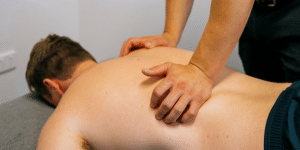How much sleep do we need to stay healthy and can we get too much sleep?

Sleep plays an important part in our health, but we can sometimes overstate its importance. It is known that too little sleep and too much sleep are both associated with poorer health – but how many hours of sleep are needed for optimal health? It’s a question often asked.
A recent report published by the Sleep Health Foundation reported that almost one fifth (19.1%) of Australians adults suffer from Excessive Daytime Sleepiness (EDS) and that 39.8% of Australian adults report they experience some form of inadequate sleep.
Definition: Excessive daytime sleepiness (EDS) is characterized by persistent sleepiness and often a general lack of energy, even during the day after apparently adequate or even prolonged night time sleep.
Sleep researchers believe there is no one magic number for ‘sleep need’ and there are a lot of individual differences. As a general guide, current recommendations are:
- Babies under 1: 14-18 hours throughout the day and night
- Toddlers: 12-14 hours per 24 hour period
- Primary school: 10-12 hours per day
- High school: 8-10 hours per day
- Adults: 7-9 hours per day
We often hear 8 hours of sleep a night as the ideal. However, there are still a number of factors relating to sleep and health that are not well understood: 1) the functions of sleep is still not understood fully; and 2) the population patterns for habitual (or usual) duration of sleep.
As we all know, getting less sleep than we need is likely to makes us feel quite sleepy and maybe a bit cranky and irritable. However, this alone does not appear to cause health problems. It would appear that until we get 5 hours or less sleep on a regular basis that it starts to have a consistently observable effect on long-term health.
It is estimated that about 5–8% of the adult population sleep habitually for 5 hours or less. Professor Jim Horne, a respected and widely published sleep expert in the UK argues that 6 hours sleep carries little or no extra risk of ill health when compared to those people having around 8 hours sleep, unless there is EDS which is clearly evident of inadequate sleep. He claims that sleep research has often combined people with less than 7 hours sleep with those getting less than 5 hours sleep. However, the critical cut-off seems to be 5 hours or less. This led Professor Horne to conclude that people regularly sleeping less than 5 hours are likely to have a higher risk of poorer health, and that there is no specific evidence to support that people regularly sleeping 6-7 hours have poorer health.
Conversely, sleeping more than 9 hours is associated with higher all-cause mortality. That is, when studies have been done investigating sleep length and overall health, those people sleeping more than 9 hours over many years, were found to have poorer health and higher death rates.

The reports of apparent chronic sleep debt in the general population led one research group to investigate the perceived shortfalls in daily sleep by utilizing a direct questionnaire method on 10,810 adults. The study found that half of participants desired more sleep, but this apparent sleep deficit was not correlated with EDS, for any age or gender group. Two points of interest from this study were 1) the response to the question, “If you had an extra hour in the day, how would you prefer to spend it? (playing sport/exercising; socialising; reading/relaxing; watching TV/film or listening to radio; working; sleeping; other)”. Irrespective of a report sleep deficit, few people opted for sleep when given waking alternatives; 2) “Stressful lifestyle” was independently related to sleep deficit. This led the author to conclude, that the desire for more sleep may be synonymous with a need for more ‘‘time out’’, as sleep deficit was unrelated to EDS, but rather related to ‘‘stressful lifestyle.’’ Thus, there may be other actions people could take to address their perceived sleep deficit such as other lifestyle choices to manage their stress levels.
In conclusion, the health risks of sleeping over 9 hours or less than 6 hours are similar. Healthy adults whose habitual daily sleep is 6h or thereabouts, should not be concerned that this amount of sleep, alone, is any more likely to lead to illness or death than for 7–8 h sleepers unless there is also EDS. The more likely immediate concern is having a fatigue or sleepiness-related accident. Where there is a greater mortality risk for very short sleepers (e.g. <5 h) it is probably largely due to waking pressures and life-style factors also causing short sleep, especially as there is no evidence that extra sleep, alone, will rectify these latter problems.
If your workplace has fatigue risk management challenges, please call one of our Fatigue Management Consultants on (02) 4962 8700 to help you reduce the risk of a potential fatigue incident, or book an online appointment.






